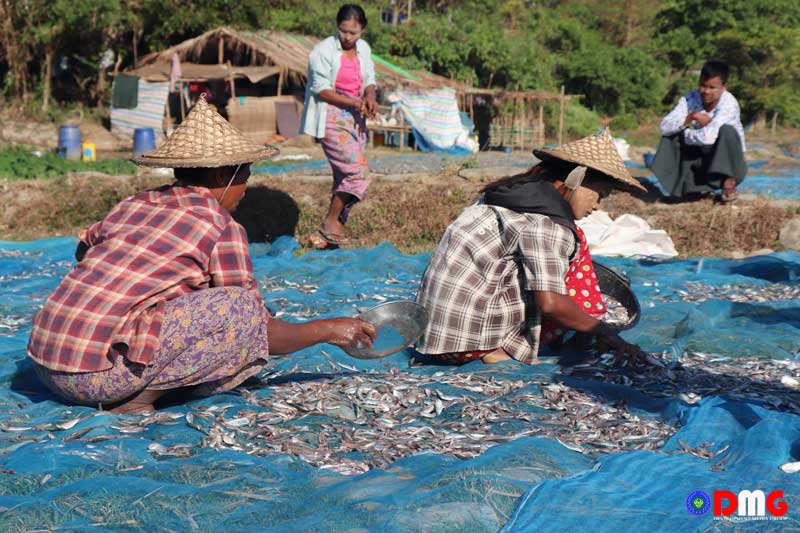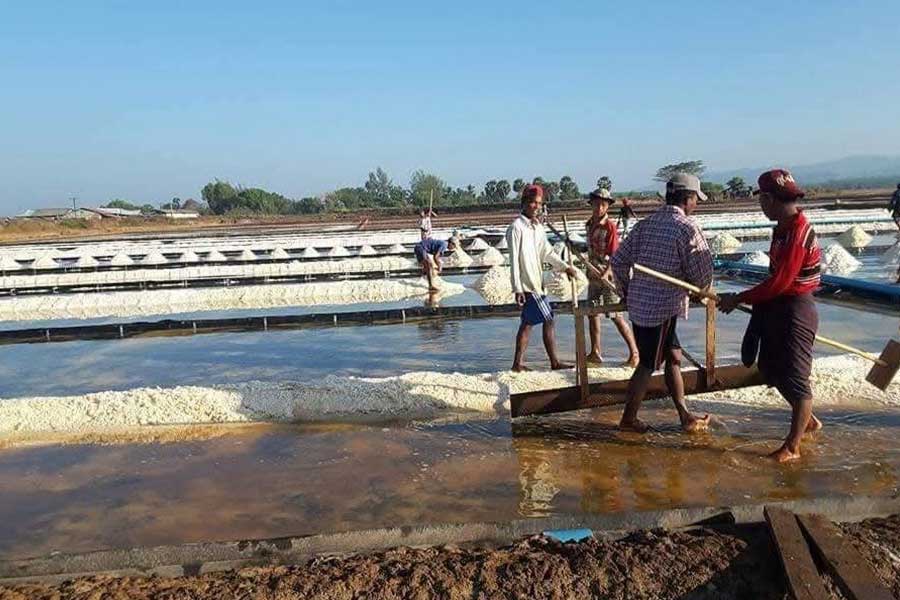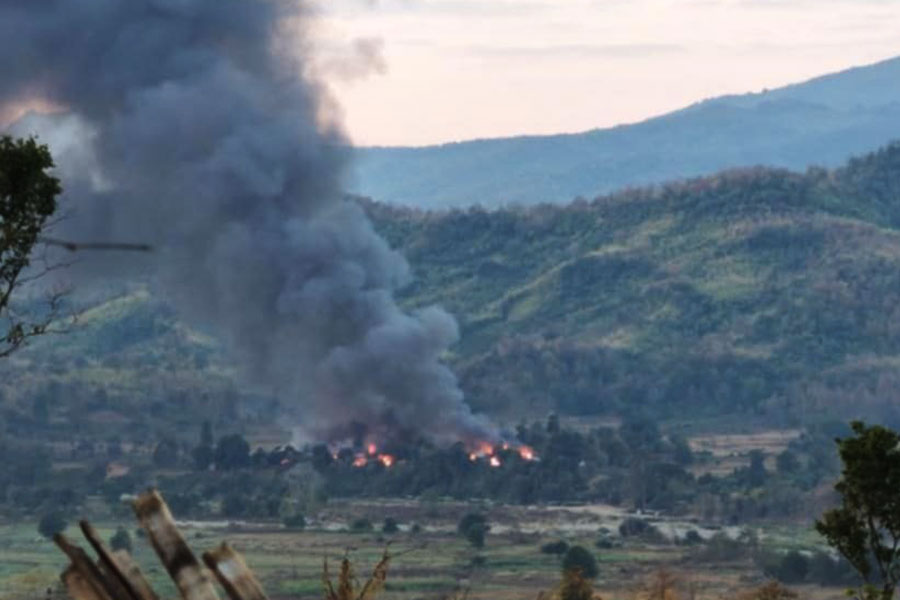- Family of minors raped by abbot in Kyaukphyu demand justice
- Salt farming declines in Arakan State as costs rise and markets falter
- Thousands flee junta raids in Mindon as villages are torched
- Children in Arakan State urgently need psychosocial support and safe spaces
- Regime uses paramotors and gyrocopters to target civilians, Fortify Rights says
Smaller catches, higher costs leave Arakan fishermen in search of livelihood alternatives
A growing segment of fishermen who depend on Arakan State’s rivers, streams and creeks for their livelihoods have halted their work due to decreasing catches and increases in the price of fishing equipment.
11 Jan 2023

DMG Newsroom
11 January 2023, Sittwe
A growing segment of fishermen who depend on Arakan State’s rivers, streams and creeks for their livelihoods have halted their work due to decreasing catches and increases in the price of fishing equipment.
Many of these fishermen have given up on fishing altogether, seeking jobs in other industries, other countries, or both.
“We rely on fishing for our livelihoods,” said U San Thar Aung, a local fisherman from Maday Island in Kyaukphyu Township. “Now that we can’t catch fish in the river, we are fishing in the tributaries. Some [former] fishermen earn a living as carpenters and some make a living as daily wage workers.”
About 300 local fishermen working on the Thanzit River in Kyaukphyu Township have stopped working because they were not catching enough fish to make the endeavour financially worthwhile. As a result, those who have not yet found a replacement source of income are struggling to put food on the table for their families, pay bills, and cover healthcare- and education-related expenses.
“I used to catch a lot of fish and enjoy fishing,” said U Lay Myint, a fisherman from Pyinphyumaw Ward in Kyaukphyu. “Now, we are now struggling to make ends meet. We cannot support our families as we cannot catch fish as expected.”
Fish are not fetching good prices once they get to market, while the cost of fishing gear is on the rise, adding additional difficulties for fishermen.
“The cost is not covered by the fish obtained, and the fish don’t sell at a good price,” said U Hla Thein, a local fisherman from Sittwe’s Mingan Ward. “Some fishermen have stopped catching fish.”
Arakan State is a coastal region, with the majority of locals primarily engaged in fishing and farming for their livelihoods.
The dwindling catches in Arakan State have been attributed to a combination of factors, including overfishing; fishing via illegal means such as the use of certain prohibited nets; periods and areas in which fishing is prohibited; and the destruction of coastal mangrove forests.
U Oo Tun Thein, acting director of the Arakan State Department of Fisheries, said conservation of the state’s marine resources required collective action.
“In the places we can’t reach, they use nets to catch fish. Mangroves are cut down, so there is a shortage of places for fish and shrimp to live,” he explained. “The Department of Fisheries also takes action against illegal fishermen, but in order to prevent the scarcity of fish resources, local people’s cooperation is also necessary.”















.jpg)

